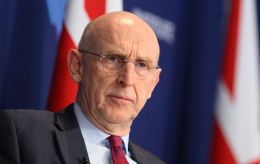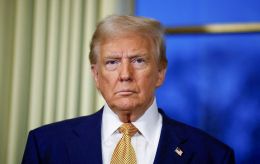Ukraine's Gen. Illia Pavlenko: 'Russia was capable of capturing Europe before invading Ukraine'
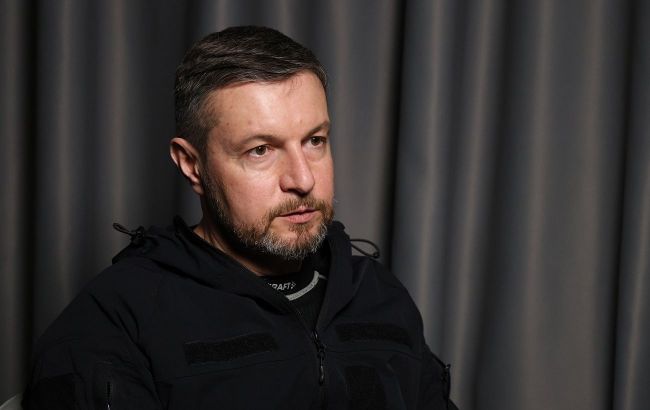 Major General Illia Pavlenko (All photos by RBC-Ukraine)
Major General Illia Pavlenko (All photos by RBC-Ukraine)
In an interview with RBC-Ukraine, Major General Illia Pavlenko talks about the details of the work of the Russian Federal Security Service (FSB), the Russian Chief Intelligence Office (GRU), and the Russian Foreign Intelligence Service both in Ukraine and abroad, and how Moscow planned to wage war in 2022.
Takeaways
- The Kremlin is using nuclear blackmail to intimidate the West through information fakes. How does it work?
- Russia's FSB, GRU, and foreign intelligence coordinate their work against Ukraine around the world. Who is responsible for what in Russia?
- Russia actively influences other countries through propaganda, cultural projects, financial pressure, and bribing politicians.
- Before the occupation of Crimea, Moscow artificially created the illusion of prosperity and Russia's superiority in the region. How did it happen?
- The Russian invasion of Ukraine in 2022 did not go according to the plan of the Russian special services. Why did it happen?
- Russian agents had been deeply penetrating the Ukrainian government since the days of former Ukrainian president Yanukovych. Was Yanukovych an agent of the Kremlin?
Major General Illia Pavlenko previously worked in the Security Service of Ukraine's Counterintelligence Department and then served as Deputy Chief of Defense Intelligence of Ukraine. His positions involved studying, analyzing, and seeking to counteract the activities of Russian special services.
In an interview with RBC-Ukraine, he talks about how the Kremlin's nuclear blackmail works, the operations of Russian special services, how Moscow prepared the ground for the occupation of Crimea, Donetsk, and Luhansk regions in 2014, and what plan it had for invading Ukraine in 2022.
Russia's nuclear blackmail
According to Pavlenko, nuclear weapons are an important tool for the Kremlin to achieve its imperial ambitions and goals. The Russians are not bluffing, but just skillfully using the availability of nuclear weapons, the general says.
He explains how this scheme works: Russian intelligence services deliberately transmit information about alleged intentions to use nuclear weapons through agents recruited by Western intelligence services, knowing that this information will certainly reach the leadership of their countries. Such fakes create panic among politicians in the West, forcing them to act more cautiously in supporting Ukraine.
"How could this fake have been promoted further? For example, the agent was tasked with clarifying where, when, and how the strike could take place. The Russians saw that the agent was starting to find out. And then, to enhance the effect, they made changes to their nuclear doctrine, which reduced the threshold for the use of these nuclear weapons. It turns out that Western intelligence received confirmation of the information from their source at the official level," Pavlenko emphasizes.
He recalls that after the start of the Kharkiv operation in 2022, the United States suspended arms supplies to Ukraine for the first time. Perhaps, if this had not happened, the war could have developed quite differently, the general suggested.
"We don't know this for sure, but given the White House's reaction, they were given misinformation about the possibility of using nuclear weapons and may have been scared and suspended assistance," Pavlenko says.
The general notes that Russia has long used such methods of influence, not only in the military but also in the political sphere. For example, after the deterioration of relations with Azerbaijan, Russia paid compensation to the victims of the downed Azerbaijani Airlines plane without waiting for the results of the investigation and erected a monument to the father of the current president, Heydar Aliyev, in front of the Azerbaijani embassy in Moscow, knowing that it would flatter Ilham Aliyev.
This is the so-called diplomacy of influence.
Russian special services' work abroad and in Ukraine
Pavlenko explained that Russia has three key intelligence services and that their tasks are usually divided. The FSB's priority is to provide security and fight terrorism, and they have to keep the Russian population under control so that they cannot overthrow dictator Putin. The GRU's task is to provide and collect information for planning operations, for the General Staff of Russia, and for striking targets. The Foreign Intelligence Service provides the leadership with information for global political decision-making, obtains information on some foreign innovations that can be copied at home, and thinks through channels for withdrawing money, import schemes, and so on.
At the same time, during the war, all of them are working against Ukraine globally, involving agents around the world. Pavlenko said that recently, the activity of Russian agents in Europe, particularly in Czechia, Romania, Poland, and Germany, has increased significantly, trying to prevent the supply of weapons to Ukraine and conducting sabotage at local defense industry enterprises.
An important element of the Russians' work is not only information gathering and sabotage, but also influence - influence through politicians, through culture, and propaganda.
"To do this, they communicate with politicians, corrupt some, give privileges to some, open these cultural centers, organize exhibitions of the Tretyakov Gallery abroad, and influence by glorifying Russian art. And then there's propaganda to bring information to the masses through the media and channels like Russia Today, and the creation of bot farms, paying bogeymen," he adds.
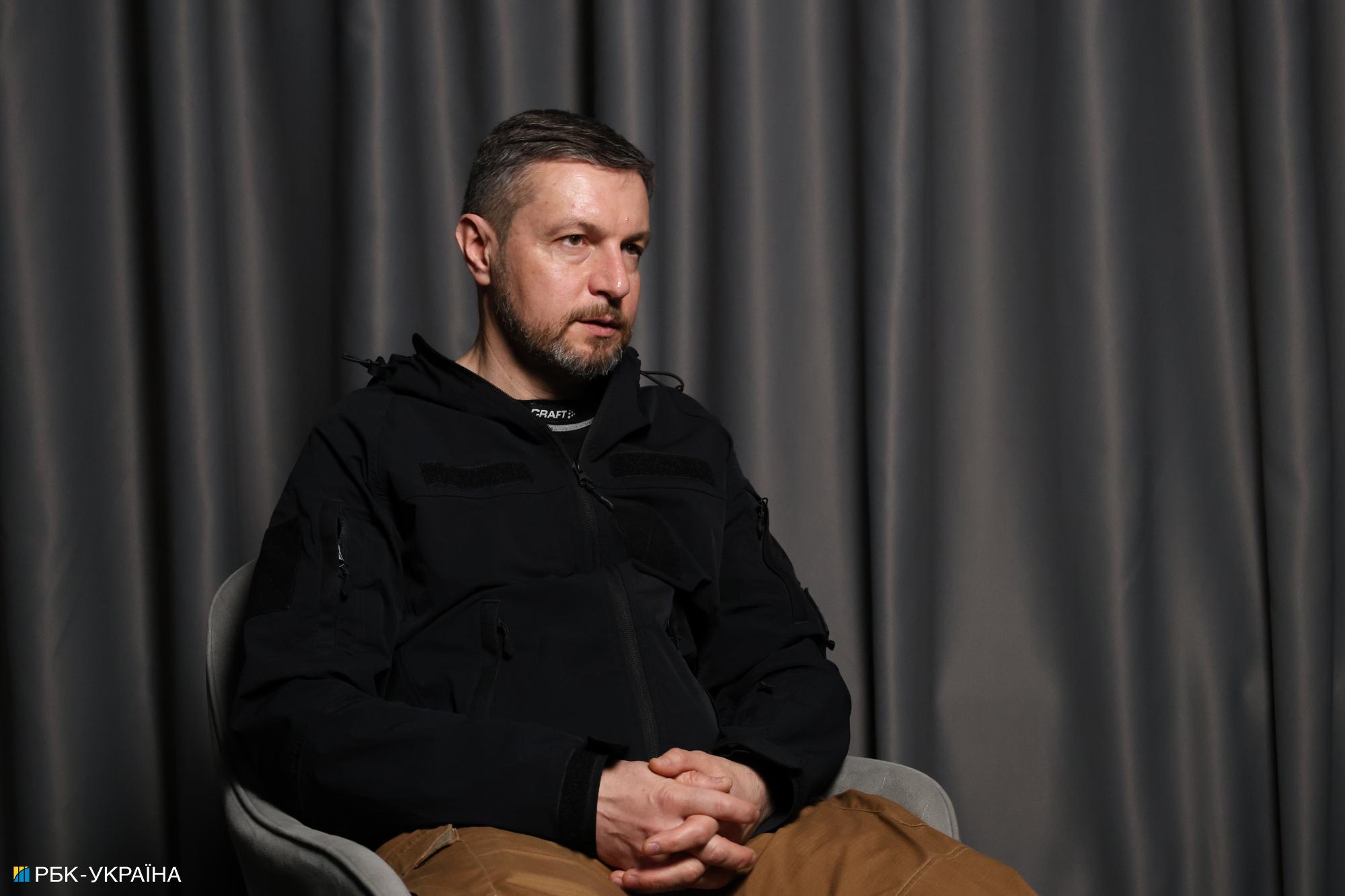
"The Russians are throwing a narrative into the masses that Russia needs. It can be accepted by the population. And then the politicians or leaders of these foreign countries reflect on it, taking into account the opinions and moods of their populations. This works especially well in the United States and the United Kingdom, where people, compared to Ukrainians, are used to watching much more television," Pavlenko says.
"How does it work? A team of people develops certain narratives that need to be disseminated, for example, within the country. They send them to everyone who needs them, including the mainstream media, controlled telegram channels, etc. But these narratives are made in such a way that they set out the general idea, and the context, but then the editorial staff itself comes up with the wording and words to do it. It works the same way for foreign audiences," Pavlenko adds.
How Russian special services worked in Ukraine before war and prepared occupation of Crimea
For three years during the term of former President Yanukovych, their people were in the Ukrainian special services, the Armed Forces, and the Foreign Ministry. They were either their agents or people with Russian passports, the general says. At the same time, Pavlenko believes that Yanukovych himself was not a Russian agent when he took office.
"He had his interests - personal enrichment, he did not have any principles, and the Russians took advantage of this. They simply gave him some advice and requests, telling him that he should appoint, for example, some person to the Security Service of Ukraine, because the Russian head of the FSB knew him. At first, the Russians promoted him to the position of one of the deputies, and then to the position of the head of the special service. And this works at different levels," the general explains.
Another example: a businessman has an office in Europe. Russians ask him to hire a young girl as a secretary or assistant. He agrees because a respected Russian diplomat asks. She worked for a year, lived in Europe, and a year later, she showed up in the United States. Later, it turns out that she was part of a secret Russian network and an employee of the Russian foreign intelligence service, he says.
According to Pavlenko, both abroad and in Ukraine, the Russians used all points and channels to arrange their personnel here, corruption, requests, and blackmail. And then, from within these bodies, they began to make the decisions they needed: they began to work against Europe and the United States, fired proactive people, disbanded departments that worked on Russia, and so on.
Even before 2014, Russian special services began to work actively in the now-occupied Crimea, Donetsk and Luhansk regions, preparing the ground for the occupation of these territories.
"In Crimea, they worked like this. Their main idea was to form a convincing idea among the local population about the greatness, power, economic independence of Russia, and generally better conditions for Crimea to be part of Russia," the general says.
Initially, the Ukrainian authorities allowed Russian naval servicemen to remain in Crimea under the so-called Kharkiv agreements. The Russian servicemen who were on the peninsula were given a very significant salary increase.
"It turned out that our officer got UAH 3-4,000 ($72-97), a colonel got UAH 6,000 ($145), and they had a captain of the 3rd rank getting UAH 60,000 ($1,451), and a captain of the 1st rank - up to UAH 90,000 ($2,177). For this money, you could buy a Lada car back then. The local population knew about it. And when our military and intelligence officers were offered to transfer, this monetary motivation also worked. It is clear that later all these allowances were cut and salaries were not so high anymore," Pavlenko explained.
Secondly, Russians brought military retirees to live there en masse to pursue this policy of assimilation. Another factor was the influence through culture. The Russians were very fond of holding events in Crimea, especially the Black Sea Fleet Day, and they brought all the elite of their pop music there. Russian motorcades of 120 Volgas would come there. People watched all this and also formed their idea of what a rich life is in Russia.
"Then the then-mayor of Moscow, Luzhkov, was involved in this story and was instructed to build such housing in Crimea that would make Ukrainians' eyes pop out of their heads. And they began to build buildings in the old Sevastopol style, with columns, planted with thuja 5-6 meters high, which later, however, all froze. They started restoring churches," the general adds.
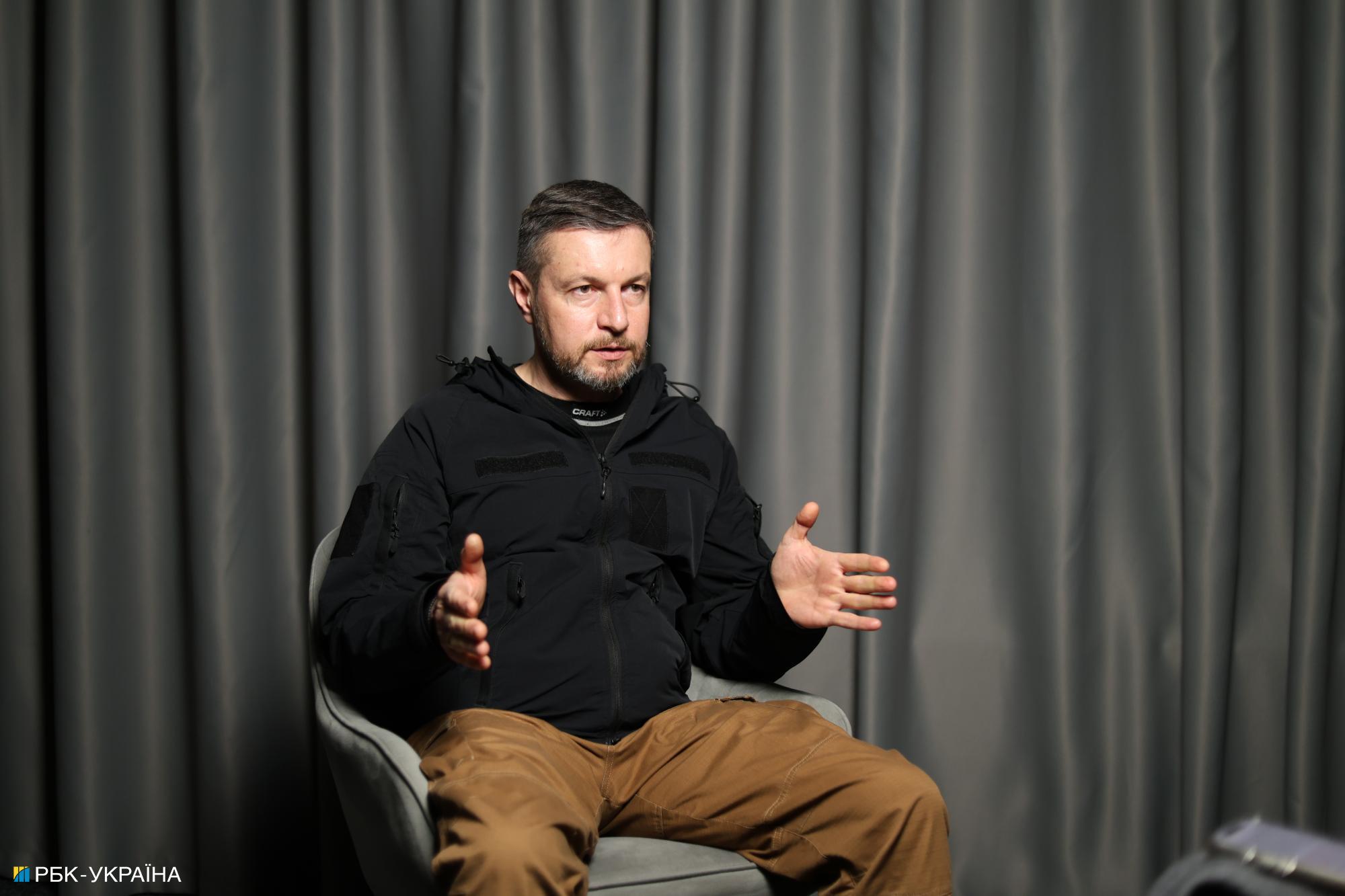
At the same time, Russian special services were infiltrating local authorities. They also had a lot of pro-Russian parties there, which were funded by Moscow. Their task was to periodically go around with posters and show that Crimea is Russia, to hold some debates, and to nominate their deputies. In other words, they were working as a kind of soft power, the general clarifies.
"And the ground was so warmed up that most of the population wanted to go to Russia at first. When they started the operation to occupy Crimea, they began to bring people there on a large scale, conscripts on ships. It happened so fast that these conscripts had to buy civilian clothes at the market in Sevastopol to pose as locals and participate in rallies for joining Russia," Pavlenko says.
In Donetsk and Luhansk, a similar situation was emerging, except that the difference was in the focus on industry: the management of almost all the powerful enterprises there was Russian. The local population believed that they were living in poverty in Ukraine, while in Russia, they would supposedly be very well off, he explains.
"They saw a picture of how the Russians live in Moscow, how well off they are, but they were not shown what is happening a hundred kilometers east of Moscow - all those sheds and barracks," Pavlenko said.
Why Russia failed to capture Ukraine in 2022
The key to Russia's failure in 2022 is that Ukraine and the Armed Forces were able to mobilize quickly and take certain measures in the first days, regroup troops the day before, and organize a defensive operation in the Kyiv region.
"The Russians had a well-thought-out, clear plan with a distraction operation. They started activating in the East a little earlier to show that their main efforts would be aimed at seizing the land corridor to Crimea. They fulfilled some aspects of their plan. But the Armed Forces and the Defense Forces of Ukraine in general, the Defense Intelligence of Ukraine, helped organize the defense, preventing the landing of a large landing force in Hostomel and Vasylkiv. After all, Russians planned to block Kyiv from different sides, set up checkpoints in certain areas, and have execution lists ready," Pavlenko says.
In addition, the Russians were preparing the political aspect of this operation, because at the beginning of the full-scale invasion of Ukraine, Yanukovych was already in Belarus. Shortly before that, the District Administrative Court in Kyiv received a request to restore Yanukovych's legitimacy. This court began to consider the issue and went into a conference room.
"This meant that at any moment, the judge could resume the hearing and say that Yanukovych was indeed the legitimate president for the time being. And in this way, the Russians planned to restore Yanukovych's power by conducting such a special operation and show the whole world that there was a so-called coup in Ukraine. And it's clear that the Russians hoped that our leadership would flee somewhere," Pavlenko says.
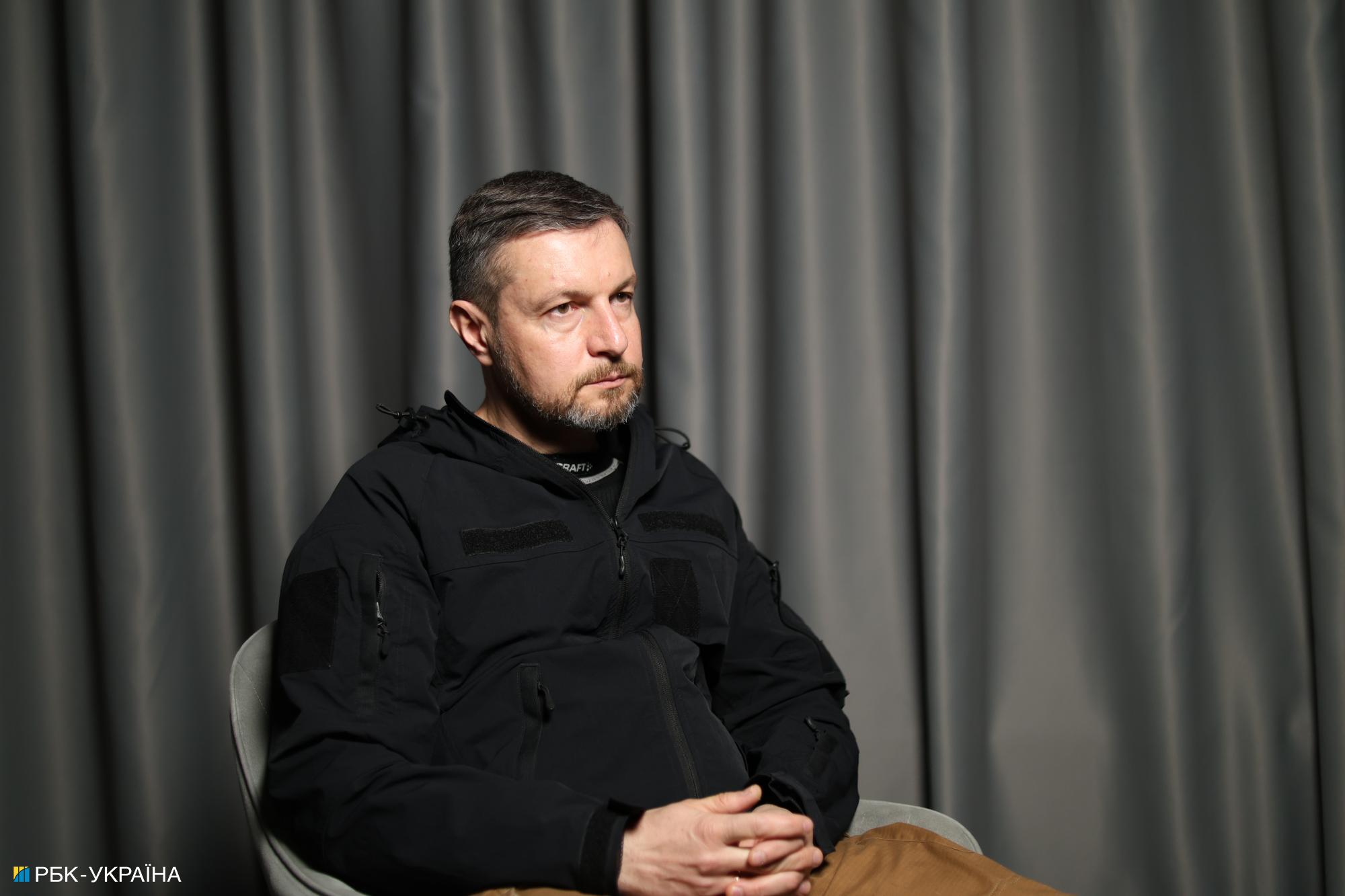
In addition, many saboteurs were brought to Ukraine before the invasion itself, in addition to those recruited from within. The fact is that when Russia seized Ukrainian territories in 2014, it gained, first of all, access to people.
"They can take away their old-style Ukrainian passports in exchange for a Russian passport. Russians can use these passports for substitutions and fraud. Secondly, our migration services in the occupied territories could have left forms for old-style passports. And they also used them to flood Europe with agents. After all, there were complaints that Russian agents with Ukrainian passports were caught there," Pavlenko explains.
"The Russians used the same scheme - under fake Ukrainian passports - to send their agents to Ukraine before the invasion and smuggle weapons. So in fact, the Kremlin had a carefully thought-out plan for the invasion. According to Gerasimov's doctrine, the calculation was that it was not necessary to use a full complement of troops for such an operation, the general says.
"That is, it is not enough to conduct combat operations. But it was enough to carry out a coup. However, this required demoralization of the military and political leadership. This did not happen," the general adds.
